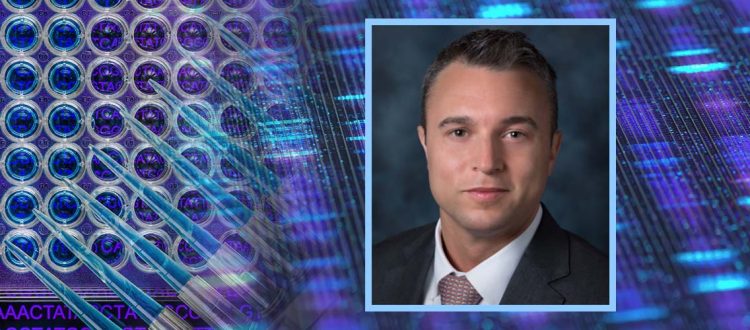Foundation Research Scholar Reports Progress in Project Focused on Peritoneal Spread
When Samuel J. Klempner, M.D. received the $300,000 Ben Feinstein Memorial Research Scholar Award from the Gastric Cancer Foundation and the American Gastroenterology Association (AGA) last year, his goal was to improve the understanding of how the disease spreads to the lining of the abdomen, called the peritoneum. One year into the three-year grant, he reports encouraging early results from his research thus far.
“We have analyzed about 25 fluid samples from stomach and esophageal cancer patients, and we’ve learned a lot,” says Klempner, a gastrointestinal medical oncologist and assistant professor at Harvard Medical School and Massachusetts General Hospital.
Klempner started with two goals: to study the composition of the ascites (uh-SY-tees), which is the abdominal fluid that collects in gastric cancer patients with peritoneal spread, and to characterize the immune components of that fluid. He hopes his discoveries inspire ideas for combination treatments that will prompt the immune system to better recognize and attack gastric cancer.
At the start of the project, Klempner and his colleagues spent some time perfecting their computational approach to analyzing ascites. They went on to perform single-cell sequencing on 10 of the samples they collected, which led to a key observation: Some ascites samples are rich in immune cells but have very few tumor cells, while others are packed with tumor cells but have virtually no immune cells.
“We don’t know exactly what is driving the differences, but we’re starting to assemble the data so we can identify patterns,” Klempner says. His lab aims to publish the first paper from the project in the next three to six months.
Klempner hopes the data generated from the project will ultimately help improve the prognosis for a large swath of gastric cancer patients. An estimated 40% of gastric cancer patients experience peritoneal spread, at which point the odds of survival drop precipitously. “My overarching goal is to really get at why these patients do so poorly,” he says, and from there to generate data that will help oncologists tailor combination therapies to patients based on the characteristics of cells in the ascites.
The Research Scholar Award has been vital for moving the project forward, Klempner says. “High-resolution techniques like single-cell sequencing generate huge amounts of data, which is wonderful. They’re also cost and labor intensive,” he says. “I wouldn’t be able to do this without this type of substantial award, and the fact that it’s focused on gastric cancer, where there are limited funding opportunities, made it really optimal.”
To learn more about the Ben Feinstein Memorial Research Scholar Award, click here.

